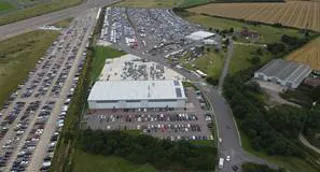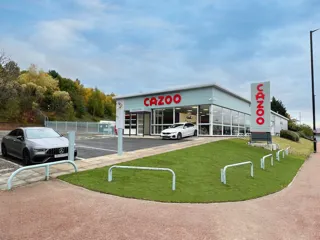The development of connected and autonomous vehicles will help generate 320,000 jobs in the UK says research by KPMG, commissioned by the Society of Motor Manufacturers and Traders.
KPMG has found these vehicles will deliver a £51 billion boost to the UK economy and reduce serious road traffic accidents by more than 25,000 a year by 2030. It also forecasts the UK will be a global leader in the production of this next generation of vehicles.
The figures are being revealed today at SMMTConnected, the first industry-wide event in Britain to explore the opportunities and challenges ahead and demonstrate how the UK automotive sector is already developing the cars of the future.
Experts from BMW, Bosch, Ford, Jaguar Land Rover, Nissan and Volvo will champion their efforts to develop tomorrow’s intelligent vehicles and discuss how society as a whole can benefit from this latest technology.
Transport Minister Robert Goodwill MP and Ed Vaizey MP, minister for digital economy, will each provide keynote speeches at the event, which will be attended by 20 vehicle manufacturers from across the UK and more than 300 representatives from insurance providers, telecoms, academics, local government and software providers.
The SMMT will also highlight the latest work being carried out by the UK automotive sector in a broadcast video to be released today, which will include interview clips from chancellor George Osborne.
Mike Hawes, SMMT chief executive, said, “Connected and autonomous cars will transform our roads and the way our society functions for generations to come, dramatically reducing accidents and helping to deliver more than £50 billion to our economy.
"The KPMG report clearly shows the UK automotive industry is leading the way in developing the cars of the future and that it will act as a catalyst for wider economic benefits that will create more than 300,000 jobs by 2030. The UK must grasp the opportunities ahead and ensure it is continually at the forefront of pushing through these next breakthrough technologies.”
Transport minister Robert Goodwill said: “New technology is fundamental to government’s ambitious vision for our roads. That is why we are making huge investments to support innovation, including £19m for real-world trials of driverless cars and £100m to research autonomous vehicles, as recently announced in the Budget. Connected and autonomous cars will help us move towards a smart, safe, efficient and low-carbon future.”
The UK has a unique opportunity to lead the way in developing the connected and driverless cars of tomorrow: it has a two-year head-start on other European countries, not having ratified the Vienna convention some decades ago, says the SMMT.
This means on-road driverless car pilots can take place without the need for primary legislation. Driverless car trials have already started in four British cities this year, and Osborne also announced in last week's Budget a further £200m government and industry investment into driverless research, development and demonstration in the UK.





















Henno - 31/03/2015 15:54
Do these 320,000 jobs take into account all the driver jobs you will be losing?